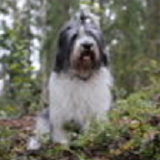Allergens such as dust and pollen love settling on surfaces such as carpets, drapes, shelves, upholstery, etc. A thorough spring cleaning can go a long way to reducing allergy-provoking contamination. However, remember vacuuming and disturbing allergen collectors can initially cause more problems than they solve.
Other environmental remedies include:
• Removing any visible mold from walls and floors using a
solution of water and chlorine bleach, or a product that
contains chlorine bleach or other fungicides. If you would
prefer to avoid chlorine, consider a mixture of white
vinegar and water to help kill mold. If you use an air
conditioner, be sure to check it regularly for mold
contamination. A dehumidifier may be helpful in keeping your
home environment dry.
• Consider buying an air filter such as a high-efficiency
particulate air (HEPA) filter, which removes particles in
the air by forcing it through screens containing microscopic
pores. How often do you change your AC/furnace filter ? Try
the more expensive ones which are better able to catch more
pollen in your home. You may wish to change filters more
often than the filter label advises.
• Brush your PON's coat after walks. This will help remove
pollen from fur. Pay particular attention to paws and legs.
Take walks in the evening when pollen counts are lower.
Avoid outdoor play activities during high pollen days.
Members of a general dog breed allergies list have reported success with stinging nettle leaf tea. This mellow tea should be steeped for 10-15 minutes to obtain its full benefits. Additional online research has shown that red tea (rooibos) significantly reduces inhalant allergies. There is no one magic bullet for coping with spring allergies, but owners need to try a range of remedies to help their PONS.
| Birch pollen associated food allergy is a well known phenomenon of
cross-sensitization to birch allergens and food allergens. Foods most frequently associated to birch pollen allergy are apples, hazelnuts, peaches, cherries, almonds, pears, carrots, and celery. However, most probably a birch sensitive individual is sensitized to only some of these food items. You should see an allergist for evaluation of your suspected food allergy. Matthias Besler, PhD (matthias besler ONLINE PUBLISHER, Hamburg, Germany) If your PON has inhalant allergies avoid: apples, carrots, celery, etc There are many fruits and vegetables frequently involved in Oral Allergy Syndrome: apple, peach, hazelnut, peanut, apricot, almond, pear, tomato, cherry, fennel, melon, orange, banana, carrot, potato, watermelon, chestnut, pea, plum, celery and grape (according to an Italian Study). Foods frequently associated to apple allergy include peach, pear, and cherry. Moreover, cross- reactivity has been observed to kiwi fruit and celery. Birch and mugwort pollens are associated in most cases. Golden Delicious and Granny Smith contained higher amounts of allergens than McIntosh and Red Delicious (Study USA). According to another study in Europe the allergen content of different apple varieties decreased in the following order: Golden Delicious, Granny Smith, Jona Gold, Idared, Gala, Jamba, and Gloster. |
